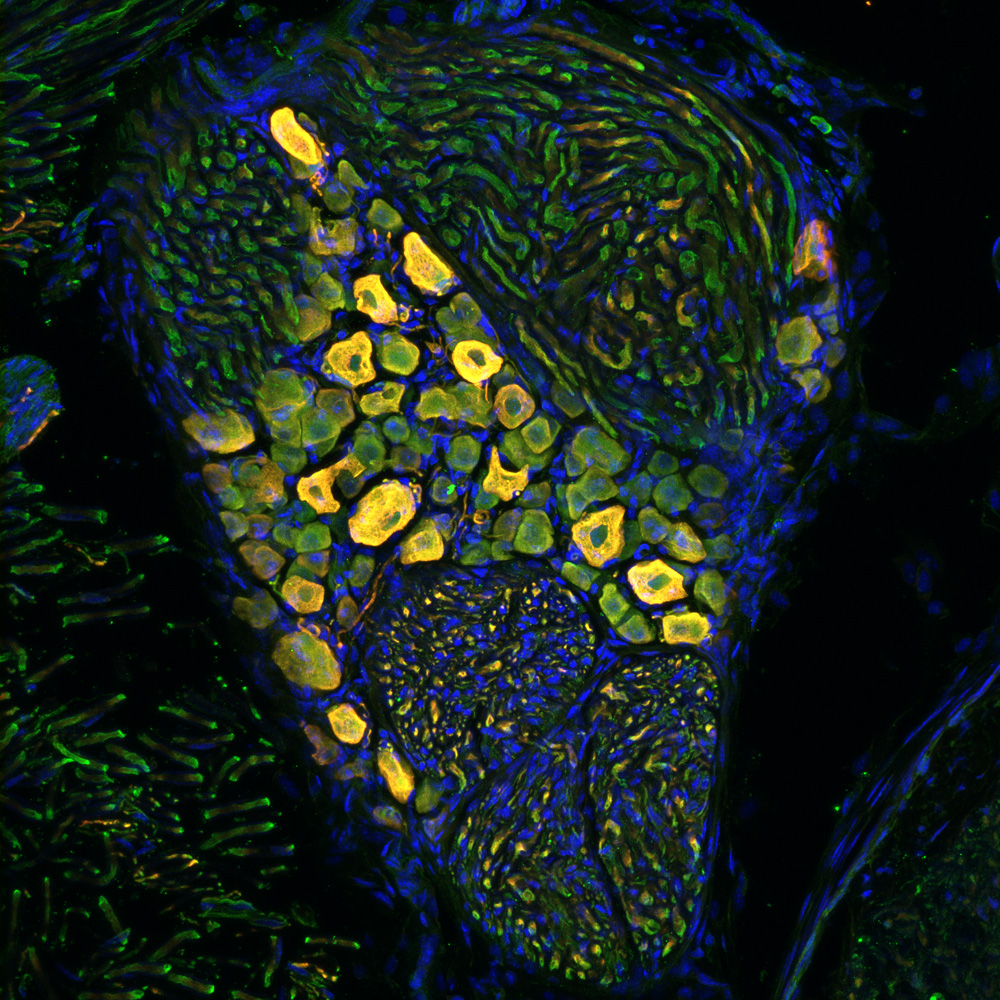
.jpg)
Center
Center for Brain BodyWe seek to understand how sensory input, regulates brain development, influences sensory perception, and shapes complex cognitive and social behaviors.
Center
Brain Body CenterThe Orefice lab studies the development and function of peripheral sensory neurons of the dorsal root ganglia that innervate the skin, oral cavity, and gastrointestinal tract, and how signals from these neurons generate somatosensory and viscerosensory representations in the central nervous system.
A major focus of their work is to understand how somatosensory and viscerosensory circuits are altered in mouse models for autism spectrum disorder. The Orefice Lab focuses on understanding how atypical peripheral sensory neuron function affects brain development and ASD-related behaviors (e.g., social alterations) as well as major, but understudied, ASD symptoms of tactile over-reactivity and GI dysfunction.
Dr. Orefice and her team aim to reveal fundamental principles of sensory neuroscience, discover basic biological mechanisms underlying autism pathogenesis, and develop therapeutic strategies targeting peripheral sensory neurons as a novel approach for improving autism-related symptoms.